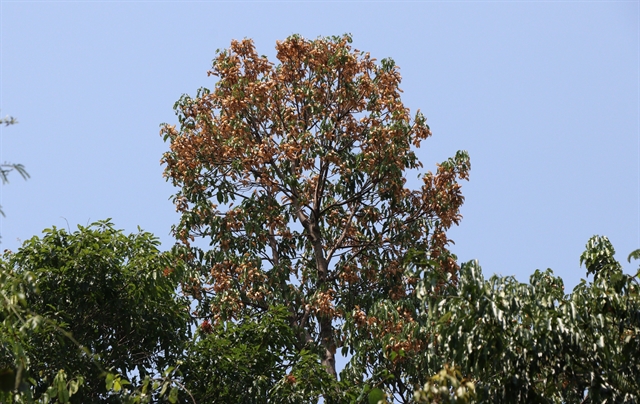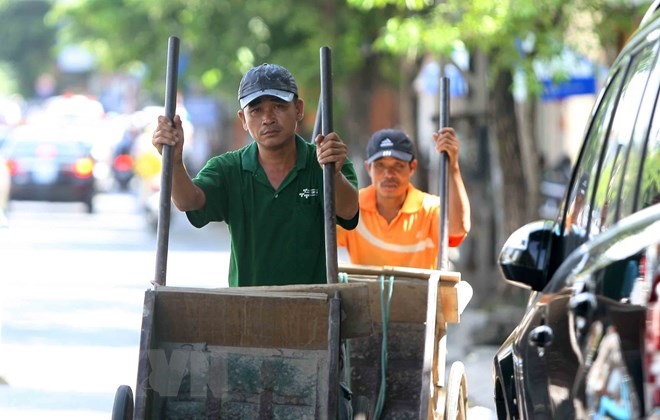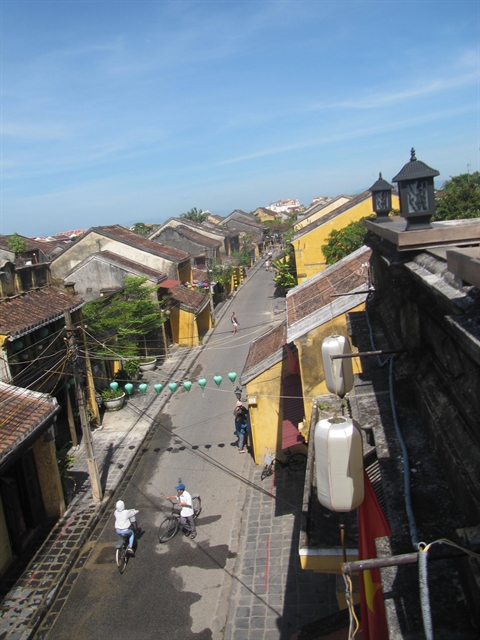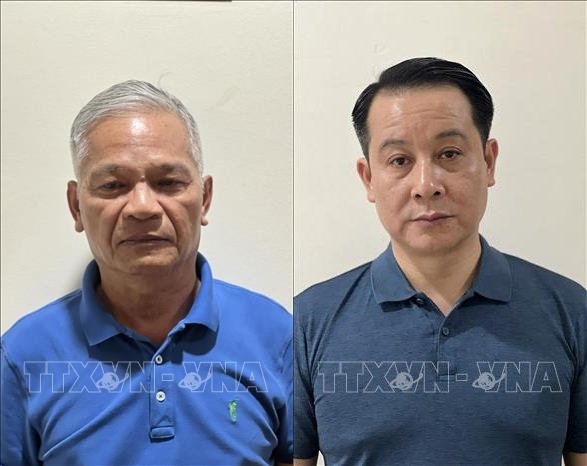 Society
Society

The Ministry of Health (MoH) has sent warning to provincial and city-level health departments, hospitals and health centres about the need to strengthen the monitoring of weather forecasts from the National Meteorological and Hydrological Forecast Centre and the implementation of medical examinations for people.
 |
| Workers exhausted by the extreme weather. The Ministry of Health sent a warning to hospitals about strengthening medical services during the ongoing heatwave.—VNA/VNS Photo |
HÀ NỘI — The Ministry of Health (MoH) has sent warning to provincial and city-level health departments, hospitals and health centres about the need to strengthen the monitoring of weather forecasts from the National Meteorological and Hydrological Forecast Centre and the implementation of medical examinations for people.
The official message was sent yesterday by the Department of Medical Examination and Treatment under the MoH, in response to the increasing needs for medical examination and treatment of harmful effects during the on-going heat wave in the north.
The message specified that at medical examination centres, hospitals must maintain clear guidelines on the examination process and uphold strict quality criteria.
Hospitals must have sufficient seats and additional fans to ensure ventilation and cooling for patients awaiting medical examinations.
Hospitals also must provide air-conditioners (if available); free drinking water to patients; medical examination desks and improve the process of medical examination and reception to minimize patients’ waiting time.
At hospitals’ treatment departments, depending on the specific financial conditions, the hospitals will install electric fans or air conditioners to ensure patients stay in cool conditions and provide free drinking water for patients.
Hospitals must minimise patient bed-sharing and isolate and control infections to prevent cross-contamination of infectious diseases in hospitals.
The hospitals must be able to supply enough emergency medicine, beds and emergency medical facilities to handle urgent cases caused by the unusual heat wave such as heart disease, brain and stroke.
Hospitals will actively receive patients and treat summer diseases such as dengue fever, foot and mouth disease, meningococcal meningitis and dangerous infectious diseases.
The official letter also stated that in the course of implementation, if any special situation happens, hospitals should report to the Ministry of Health for timely handling.
According to forecasts of the National Hydrological Forecast Centre, this summer, the average temperature in the country has tended to be higher than the average temperature in recent years. — VNS


.jpg)






